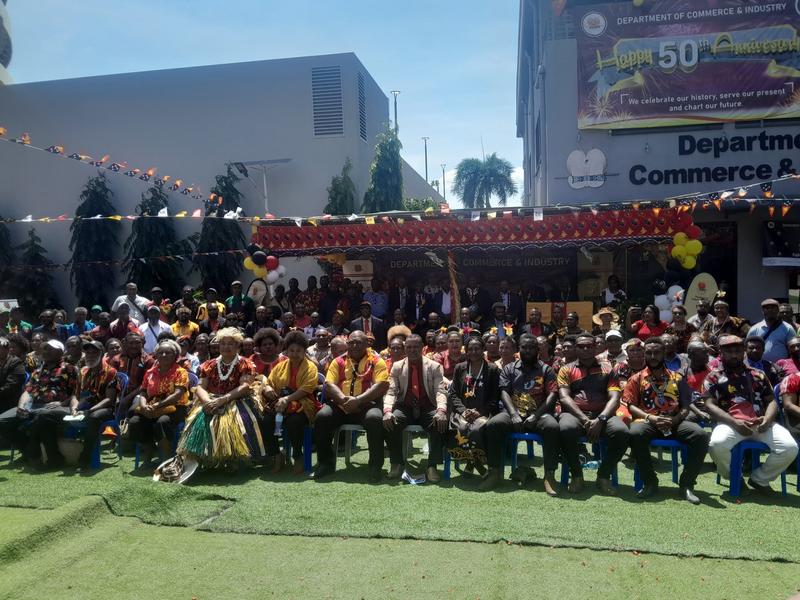Papua New Guinea’s Minister for Commerce and Industry, Win Bakri Daki, announced two major policies during the Department of Commerce and Industry’s Independence celebration on 1 September. The event, part of the ministry’s month-long programme marking PNG’s 50th Independence anniversary from 1 to 30 September, provided a platform for the minister to outline plans for economic growth and national empowerment.
The first policy is a Reserve Activities (RAL) initiative aimed at ensuring business opportunities suited to Papua New Guineans are reserved for them. While stressing the importance of foreign investment, he said it must be managed in a way that prioritises national interests. The second policy focuses on establishing national standards for infrastructure, including buildings, roads and car parks, to ensure safety and proper planning.
Daki outlined his commitment to empowering local communities and driving economic growth through decisive action and policy implementation. His speech emphasised gratitude, acknowledged the contributions of past leaders and set a clear direction for the future of commerce and industry.
.jpg)
A key focus of his address was the importance of tangible outcomes over rhetoric. He challenged public servants to be dedicated and effective, urging them to deliver results that bring visible benefits to citizens. The recently launched “Working Content Policy” was highlighted as a milestone achievement, providing a framework to promote downstream processing and manufacturing, which he described as key drivers in the government’s vision for a more self-reliant economy.
In addition to policy initiatives, Daki announced a historic move to support public servants through land ownership. He revealed that 320 land titles were being issued to staff within the Department of Commerce and its related agencies, framing it as both recognition of their service and a step towards long-term security.
Throughout his address, the minister expressed gratitude to current leaders, departmental staff and predecessors who contributed to shaping the sector. He pledged to build upon their legacy while steering new initiatives that strengthen national pride and economic growth.
Daki’s message was ultimately one of action, urging all stakeholders to work together in transforming policies into practical outcomes that safeguard opportunities for Papua New Guineans and lay the foundation for national development.










